- Home
- slideshows
- miscellaneous
- The 7 most overlooked issues that will make or break tech companies in 2019
The 7 most overlooked issues that will make or break tech companies in 2019
Facebook — Rob Price, News Editor

Uber & Lyft — Becky Peterson, Deals Reporter
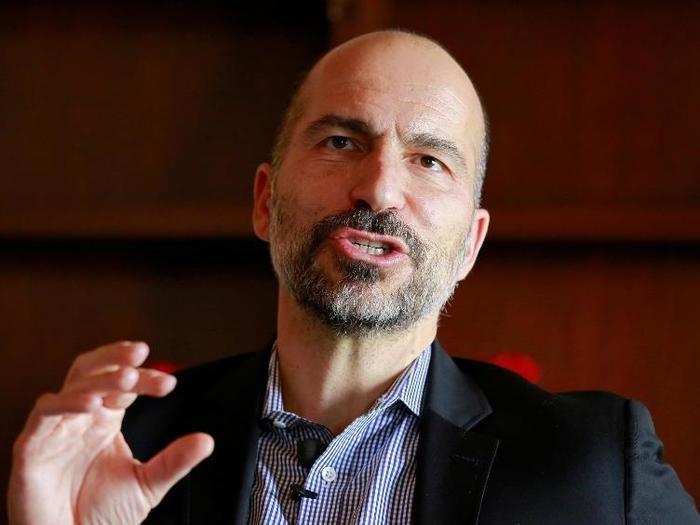
The big headline in 2019: Competing IPOs. Ride-sharing companies Uber and Lyft are both slated to go public in 2019. The two companies have competed on everything from which bankers they use, to the timing of their confidential filings. Now the wait is on to find out who will ring the bell and actually go public first.
But you should really pay attention to:How volatility on the public market impacts investors in Uber and Lyft.
Both Lyft and Uber have raised billions of dollars at multi-billion dollar valuations. But those valuations were set during an economic boom.
If the stock market continues to correct, it's likely that valuations across public tech companies will also sink. So investors who put money into unicorn startups at the end of their rise risk losing money when those companies go public: If the shares trade at a lower price than they were valued at on the private markets, some investors could lose their shirts.
Video game platforms — Kevin Webb, Video Game Reporter
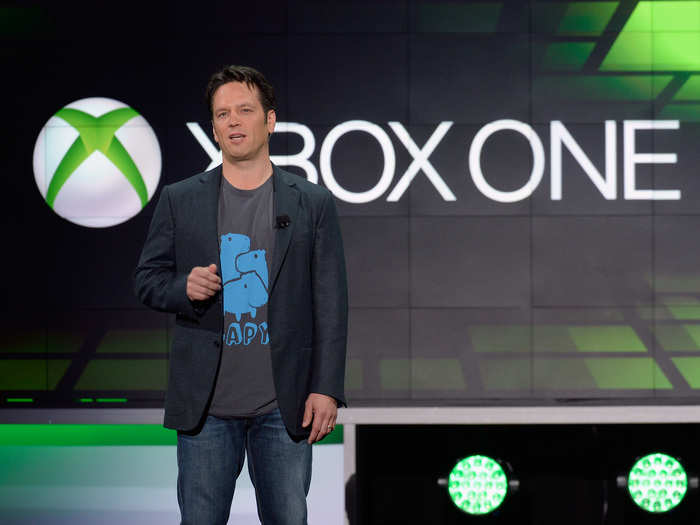
The big headline in 2019: A new generation of video game consoles is on the horizon, with early details expected about the next versions of the Sony Playstation and Microsoft Xbox.
But you should really pay attention to:Cloud gaming.
Google, Microsoft, and Electronic Arts are all developing new video game streaming platforms capable of delivering the latest titles to phones and even the most average computers, possibly removing the need for consoles entirely.
In the simplest terms, the cloud server runs the game and sends the player a video feed, while the player's controller inputs are sent back to the server. Obviously this requires a rock solid and lightning fast connection with no lag time, which is why some of the earlier attempts at subscription-based cloud gaming services have gotten mixed reviews. Now, the tech giants are trying again.
Google’s ProjectStream entered beta testing in October with a single game, the recently released “Assassin’s Creed Odyssey.” Playable from the Google Chrome internet browser, the experience was comparable to playing on the PlayStation 4, a $300 console. In 2019, Microsoft and Electronic Arts will begin beta testing their own respective streaming services: Project xCloud and Project Atlas.
"There are 2 billion people who play video games on the planet today. We're not going to sell 2 billion consoles," Microsoft's executive vice president of gaming Phil Spencer said in June.
Microsoft — Rosalie Chan, Enterprise Tech Reporter
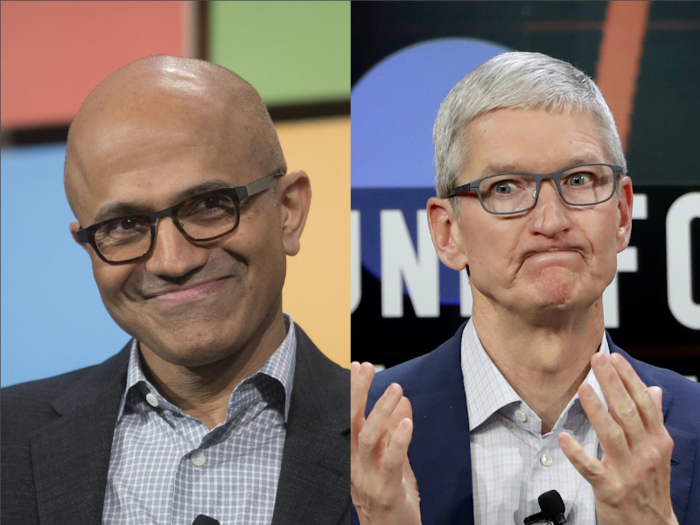
The big headline in 2019: Microsoft has displaced Apple as the world's most valuable company.
But you should really pay attention to:Microsoft's place in the cloud wars.
Amazon Web Services is currently seen as the undisputed leader in the cloud wars. But Microsoft Azure is quickly catching up. Microsoft Azure's growth has been astoundingly high for the past few years -- even when it saw a slowdown last quarter, Azure's revenue growth rate in the first quarter of its fiscal 2019 year was 76%. Microsoft's strength is in the enterprise. AWS is watching its back, and its partnership with enterprise mainstay VMware shows it.
And right now, Microsoft is in the running for the Joint Enterprise Defense Infrastructure (JEDI) contract, a winner-take-all $10 billion cloud contract with the Pentagon. Analysts say it's really a two-horse race between Microsoft and AWS. Microsoft has invested significant amounts of money, time and effort into its government cloud, and it's on track to obtain the highest security authorization from the federal government to handle government data by early next year. If Microsoft wins this contract, it would completely transform the cloud industry and would be a "crowning achievement" for Microsoft CEO Satya Nadella, says Daniel Ives, managing director of equity research at Wedbush Securities.
"It would have a significant ripple effect for cloud," Ives said. "With DOD going to cloud with Microsoft, it's hard to argue with that sales pitch."
The contract is expected to be awarded in early 2019.
Apple — Alexei Oreskovic, Global Tech Editor
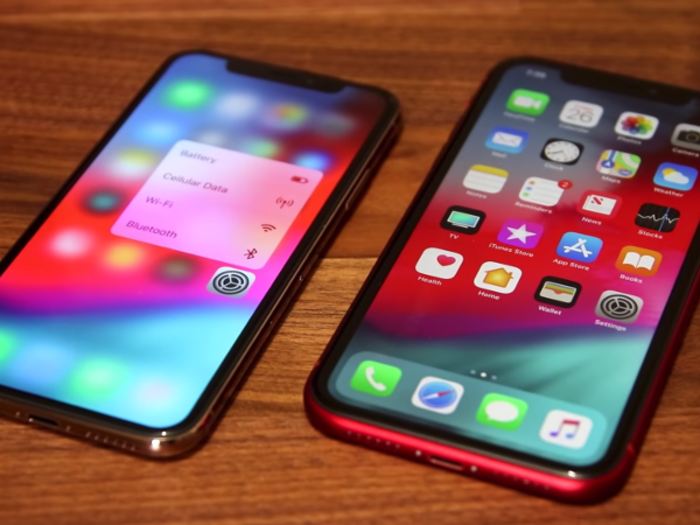
The big headline in 2019: iPhone saturation has cut into Apple's growth rates, as consumers feel less of a need to spends hundreds of dollars to upgrade to new devices.
But you should really pay attention to:China.
While slowing iPhone sales represent a new reality for Apple that investors are coming to grips with, the big wildcard is Apple's business in China amid a growing trade war, a tricky regulatory landscape and fierce local competition.
China accounts for nearly 20% of Apple's revenue, and Apple's supply chain for components and its manufacturing via partners like Foxconn is deeply entwined in the country.
Apple CEO Tim Cook's relationship with President Donald Trump has thus far saved Apple products from getting slapped with tariffs, but keeping Apple out of Trump's line of fire is likely to occupy a lot of Cook's time and energy in 2019.
Meanwhile, smartphones from China's Huawei recently displaced Apple's iPhones to become the second most popular brand worldwide by sales. And with Chinese companies now urging their workers to boycott Apple and buy Huawei phones, to protest the arrest of Huawei's CFO earlier this month, Apple's China challenges aren't likely to go away anytime soon.
Google — Nick Bastone, Tech Reporter
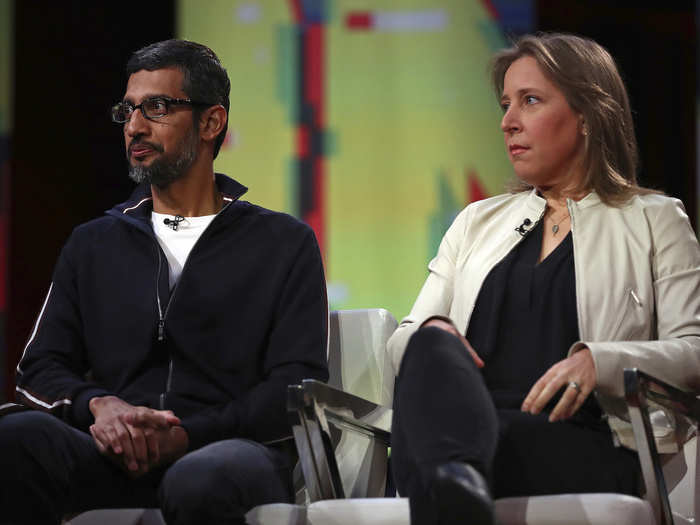
The big headline in 2019: President Trump and other Republican lawmakers have accused Google of suppressing conservative content in its search engine.
But you should really pay attention to:YouTube's content problem.
Conspiracy theories, fake news and explicit content are not hard to find on YouTube — worse still, YouTube's algorithm sometimes even recommends them, despite Google's efforts to fix it up.
“This is an area we acknowledge there’s more work to be done,” Google CEO Sundar Pichai said in his testimony before Congress regarding questions of conspiracy theory videos on YouTube. Specifically, Pichai was asked about why videos suggesting Hillary Clinton killed young girls during satanic rituals were allowed on the platform. “With our growth comes more responsibility, and we’re committed to doing better as we invest more in that area.”
YouTube CEO Susan Wojcicki has also acknowledged ths issue, saying: "I’ve also seen up-close that there can be another, more troubling, side of YouTube’s openness. I’ve seen how some bad actors are exploiting our openness to mislead, manipulate, harass or even harm.”
Wojcicki’s statement, however, came from a December 2017 blog post and since then, calls to address the problems surrounding YouTube’s content and policies have intensified.
YouTuble is one of Google's most important ad revenue engines outside of search. If YouTube doesn’t take more action to clean up its mess soon, 2019 could be the year that viewers and creators decide to pack up shop and find a new home for online video.
Fortnite mania— Ben Gilbert, Senior Correspondent
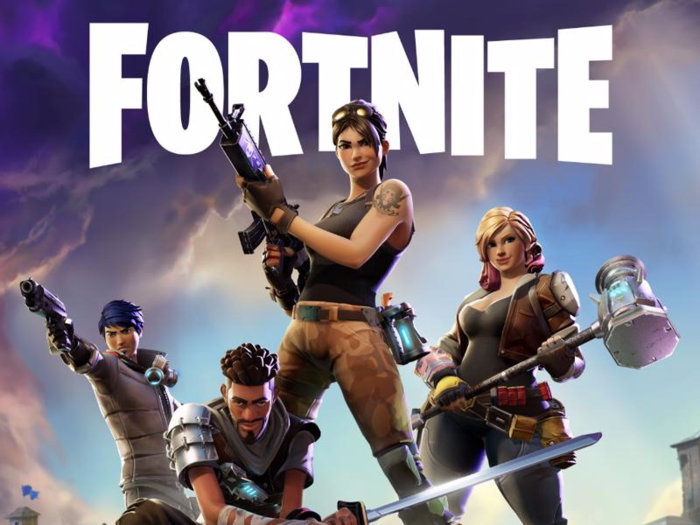
The big headline in 2019: Millions of teenagers are playing "Fortnite," and some parents are worried it's another sign of technology ruining childhood.
But you should really pay attention to: The real issue is the surprisingly pernicious cultural stigma that continues to plague video games. The same people who grew up playing "Super Mario Bros." and "Duck Hunt" — Millennials like me! — are now turning to Nextdoor support groups for help in dealing with their child's gaming "addiction." Too much screen time, on phones or TVs or computers, is an issue everyone deals with in the modern era. It's a real problem that's worth addressing, but "Fortnite" isn't the root of the issue. Instead of panicking, try playing "Fortnite." Ask your kid(s) why they love it. Ask for help learning how to play. Squad up together! And let go of the idea that playing video games is a waste of time. After all, you grew up playing them, and you turned out okay!Popular Right Now
Popular Keywords
Advertisement